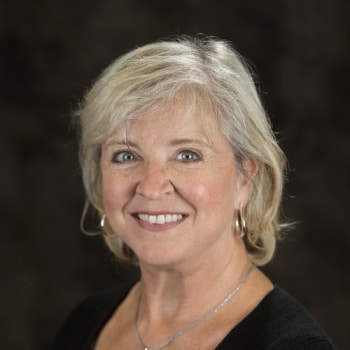
Casting a Wide Net
From clinical practice to public health to academia, Pam Cushenan, ASDH, BSHA, MS, has logged in some serious mileage in the dental hygiene profession, with particular emphasis on geriatric and special needs populations.

After earning an associate’s degree in dental hygiene in 1987 from Tennessee State University and Meharry Medical College, Pam Cushenan, ASDH, BSHA, MS, obtained a Bachelor of Science in Health Arts (BSHA) in 2001, and a master’s degree in training and development in 2006, both from the University of St. Francis in Joliet, Illinois.
Cushenan has worked in clinical, academic, and public health settings, and founded Soft Smiles, LLC, an Atlanta-based oral health training program for special needs patients. On the eve of her recent retirement from Perimeter College, she was presented with Georgia State University’s prestigious Carl V. Patton President’s Award for Community Service and Social Justice.
Q: You worked as a dental hygienist in a private practice for more than a decade, but in 2002, you became an assistant professor in dental hygiene at Georgia State University’s Perimeter College. What drew you to the educational side of dental hygiene?
A: After completing my BSHA, I worked with students in the clinical setting as a part-time clinical faculty member for 3 years while finishing my master’s degree. I then became a full-time educator. I loved clinical patient care, but teaching, guiding, and helping to develop future oral professionals were very stimulating and gratifying.
Q: As you look back over your tenure, of which of your accomplishments are you most proud?
A: I was determined that our student dental hygienists be versatile in working with diverse populations. So, I developed interactive research-based team assignments that engaged students with entities such as Title I schools, long-term care settings, refugee centers, and domestic violence shelters. I also collaborated with the Georgia Department of Public Health to expand our community outreach opportunities to include preventive dental services.
Q: What challenges will graduating dental hygiene students face when entering the workforce during the pandemic?
A: Shorter patient appointment times, changing protocols to accommodate nonaerosol policies, inconsistent personal protective equipment availability, increased stress levels/anxiety, and scarcity of childcare are all issues facing new dental hygienists. However, new graduates will adapt more easily to changing COVID-19 protocols than dental hygiene veterans. They are well versed in high-level asepsis, technically adept, and use the newest American Academy of Periodontology classification system.
Q: How did Soft Smiles come into being?
A: In 1997, an assisted living residence was built next to my practice. Suddenly, my patient load of older adults increased by 30%. It was apparent that daily oral care was not being addressed adequately. So, I developed a series of care methods, shared through interactive training of family and/or professional caregivers.
I established Soft Smiles (softsmiles.com) in 2007 to increase the number of older adults and caregivers who could benefit from these methods. I still contract with numerous long-term care facilities to provide in-service training for nurses and nurses’ aides, as well as soft oral care services. I also offer dental hygiene practitioners a Soft Smiles Oral Specialist Course that better prepares them to provide preventive and therapeutic dental services in geriatric settings.
Q: You were key in the passage of HB 154, which allows dental hygienists to provide preventive dental care under general supervision. What developments do you see going forward?
A: The law took effect on January 1, 2018. Dentists authorized dental hygienists to provide basic preventive services in private practice settings, while expansion of general supervision dental hygiene has experienced a slower transition. To continue to improve dental health outcomes, I foresee the inclusion of teledentistry, the provision of preventive and therapeutic dental services within our scope, and the ability to administer local anesthesia, interim therapeutic restorations, and silver diamine fluoride.


Comments are closed.